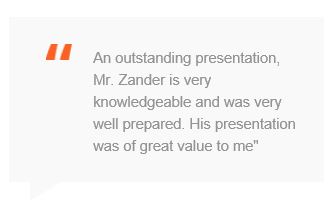
Last month a CPA from Austin wrote and asked me to comment on creating income alternatives when a client decides to postpone claiming Social Security benefits until age 70. I most always recommend that the higher earning spouse should delay claiming benefits until age 70! The reason is twofold; #1 I want to capture the delayed credits of 8% per year between ages 66 – 70 (thus increasing benefits by 32%) and #2 Upon the death of either the spouse the surviving spouse inherits the greater of the two benefits (see reason #1). This is extremely important, if the husband is the higher earner and older than his wife.
RECAP! Your monthly check at age 70 is TWICE as much as someone who claims at 62. It takes approximate 9 years for a person who claims at 70 to catch the individual who claimed at 62 on a CUMULATIVE basis, from that point forward there is a huge monthly difference in monthly benefits. As an example, an individual born in 1959 who maxed out benefits and claimed at age 70 would receive approximately $3,100 more per month than a person who claimed at 62 assuming a 2.6% COLA. Waiting to claim until age 70 and living into your 90’s could mean an additional $500,000 more in benefits than an individual who claims at age 62!
ALTERNATIVE Options Available – WISH 4 Income Puzzle
In its simplest form there are 4 pieces that make up the Retirement Income Puzzle, they are;
Work – Investments – Social Security & Pensions & Home Equity
If one is going to postpone Social Security until 70 then we’ll have to tap an alternative source of income while they wait!
#1) WORK – Phased Retirement
Contrary to popular opinion WORK is not a 4 letter word! More and more American’s are deciding that continuing work in some form has numerous positive attributes. The WSJ published an article recently saying continuing to work was good for your wealth and your health. I’d also add it could be good for your marriage as well, it’s estimated that 25% of baby boomers will get divorced during retirement. During a client consultation last week, the gentleman commented that he was selling his business and was offered a consulting position with the acquiring firm, without a moments hesitation his wife said he’d take it! I guess the old saying is true “Till death do us part, but that doesn’t include lunch.”
From a financial standpoint if you could earn $40,000 per year consulting on a parttime basis that is equivalent to having $1,000,000 in capital assuming at a 4% withdrawal rate.
#2) INVESTMENTS
Prior to the 1980’s most companies had Pension Plans for their workers today, less than 6% of individuals will receive a company pension upon retirement. Companies no longer wanted the liability of paying retired employees monthly checks for decades after they left employment. In response to eliminating defined benefit plans we saw a massive shift to defined contribution plans (401k’s, SEP-IRA’s, etc.). The purpose of the defined contribution was to accumulate sufficient wealth in the plan while working and then use the assets accumulated to create a lifetime income upon retirement. The dilemma for individual is they must accept Personal Responsibility to manage the assets during both phases and in the retirement phase, create a lifetime income stream, manage the tax consequences of the withdraws for an Undefined and Unknown time frame.
Making matters more challenging in 2021 is the fact we have an extremely high and volatile stock market (Bull Market) we have extremely low / non existent interest rates (Bond Bull Market) and we have relatively low tax brackets, especially when one considers what tax brackets were prior to the 1980’s. This scenario creates an opportunity to draw down on qualified plans and create an income bridge while delaying Social Security.
“Most people should consider paying taxes now on assets in tax-deferred accounts, like traditional IRA’s, to convert those assets to a Roth IRA, since taxes are likely to go up in the future” Ed Slott, IRA and Tax Experts
#3) HOUSING WEALTH
With the booming real estate market, it is estimated that 2/3 of most American’s wealth is in their homes. Houses are illiquid assets that not only do not pay interest or dividends, but cost you money (taxes, insurance and maintenance). I guess the biggest question for many retirees is how do I tap the equity in the home? Many people decide to sell the house and down size, however I’ve yet to meet someone who actually put money into their pocket after downsizing, but I’m sure some people do! Others decide to take out a Home Equity Line of Credit (HELOC) the problem here is you have to pay interest and pay back the principal balance at a later date and it is a recourse loan (other assets can be used in the event that the loan is greater than the value of the home). Another problem with a HELOC is that you have to qualify to get one and many banks and other institutions are no longer offering them and in many cases the ability to qualify for one is based upon income not net worth, they can also be canceled. One option that is worth exploring is a HECM (Home Equity Conversion Mortgage) affectionately known as a Reverse Mortgage. They might make sense if you intend to stay in the home for at least 10 years and you have equity in the home in excess of 50% of value of the home. NOTE: I’ll explore HECM’s more thoroughly next month!
#4) ANY COMBINATION OF THE ABOVE
Working part time, having one spouse claim Social Security, drawing down on qualified plan assets, using home equity assets in combination with other strategies could prove beneficial and worth exploring.
Synopsis – No Cookie Cutter Advice
No two people are alike and everyone has different financial and life issues that they must and will deal with. When the only Certainty in Life is Uncertainty we can only do the best we can, with what we have available.
I guess Solomon was right, when he said 7 times in his autobiography “that there is nothing better than to eat, to drink and to be happy in the fruits of your labor for that is truly a gift from God”.


